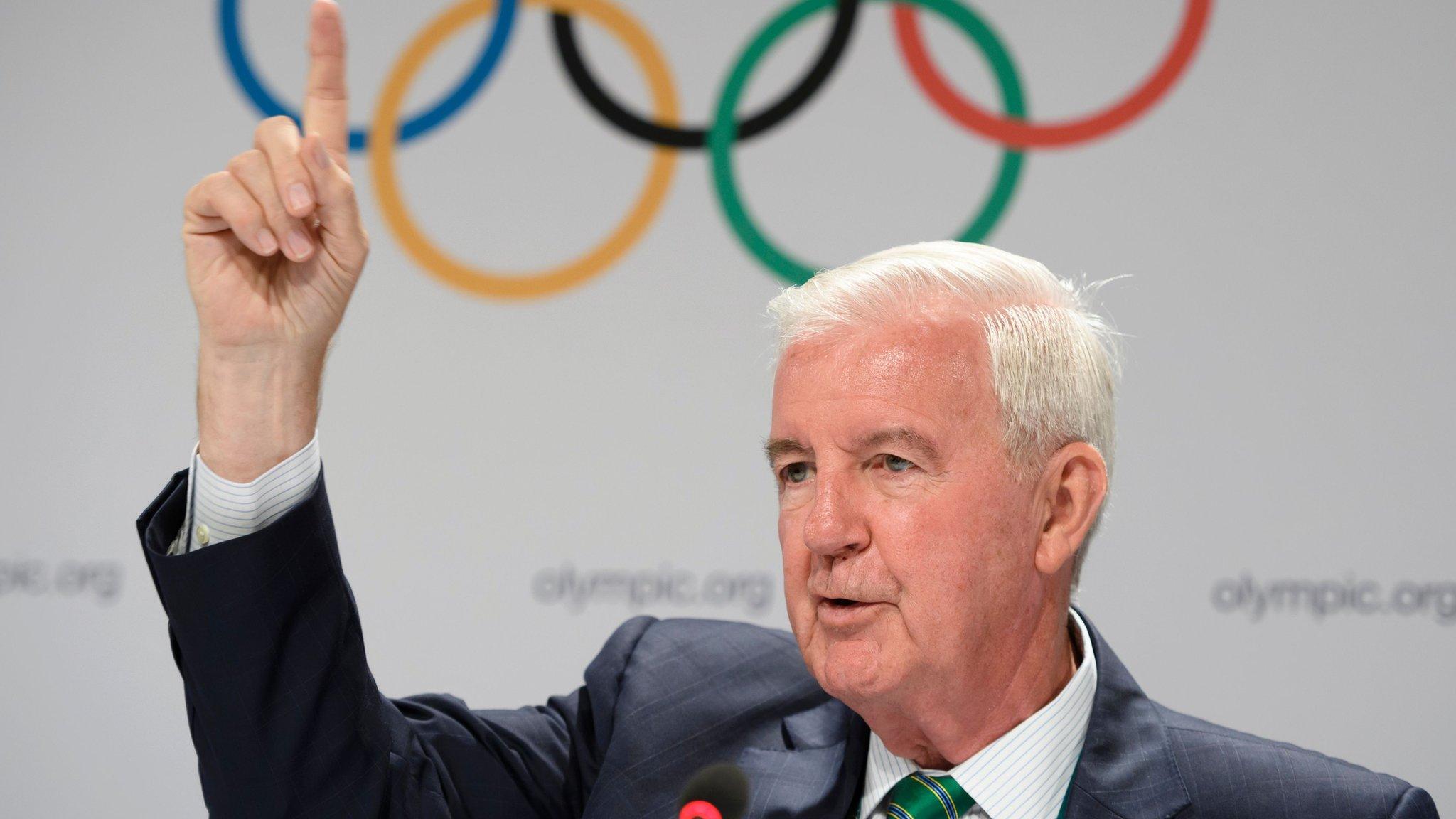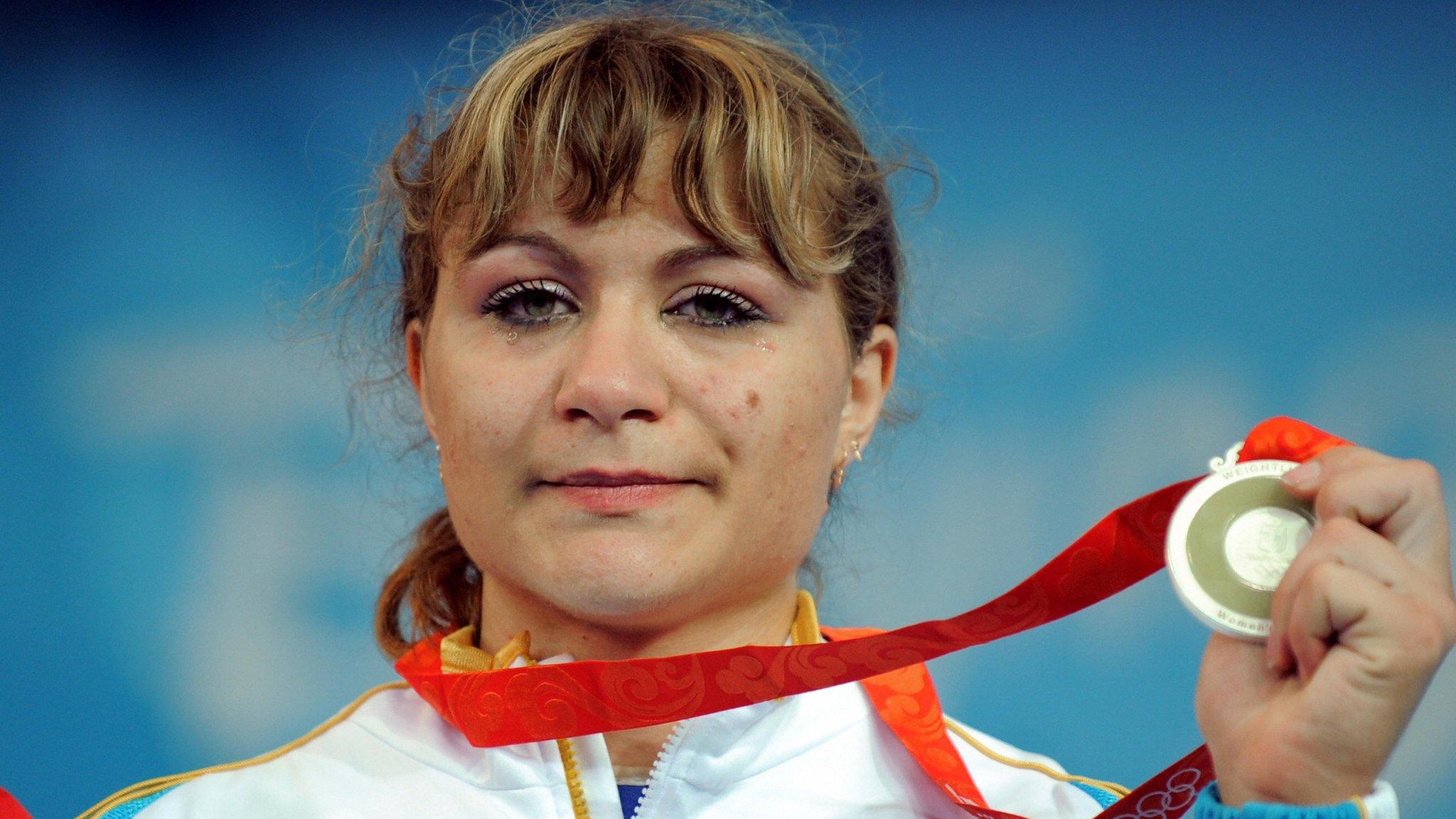World Anti-Doping Agency: Russia urged to admit state-sponsored doping
- Published

McLaren's first report claimed dozens of Russian athletes were doped in the build-up to Sochi 2014
World Anti-Doping Agency officials have urged Russia to admit to state-sponsored doping in a bid to regain the rest of the sporting world's trust.
Former Russian sports minister Vitaly Smirnov, head of Russia's anti-doping commission, said it has never conducted a state-sponsored doping programme.
Wada pushed for a complete ban on Russian athletes from the Rio Olympics.
The International Olympic Committee decided instead to leave the decision to individual sports federations.
It came after an independent report found evidence of widespread state-sponsored doping in Russia in the lead up to the Winter Olympics in Sochi in 2014.
At Sunday's foundation board meeting in Glasgow, Wada announced that the second part of the independent report, compiled by Professor Richard McLaren, is to be released on 9 December.
Sir Craig Reedie, who has been re-elected as Wada president for a second three-year term, said he was confident Wada was "making progress" with Russia.
"The facts are that the McLaren commission indicated that there had been breaches of the code involving the Moscow lab and the ministry of sport," said the 75-year-old Scot.
"To that extent, that's the scale of the issue we have to deal with. I'm really, really keen to move forward. We need to have Russia compliant."
Sir Craig Reedie says Wada will continue its fight against doping
Wada also announced proposals to seek greater powers to impose sanctions, as well as a new whistleblower programme aimed at protecting and encouraging athletes or officials who seek to highlight doping.
"What we started today was a roadmap on compliance," added Reedie.
"People have been saying to us that non-serious compliance needs non-serious sanctions - and that serious non-compliance needs serious sanctions.
"There is quite clearly a feeling within the athlete community that this should be done. There is much work to be done. It will take massive consultation before we get to the finished article."
IOC chief Bach has 'no regrets' over Russia ruling
The body said at its board meeting in Glasgow that people are still at risk from cyber-hackers who are trying to access athletes' medical records.
A hacking group known as Fancy Bears has been releasing records of therapeutic use exemptions, which allow athletes to use otherwise-banned drugs because of a verified medical need.
- Published17 November 2016

- Published17 November 2016

- Published19 November 2016
